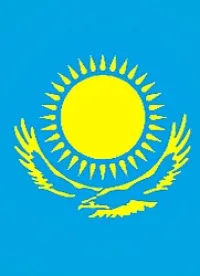The provisions that relate to permits and licenses were recently consolidated into one legislative act.
In November 2014, the Permits and Notifications Law of 16 May 2014 (the New Law) will take effect in Kazakhstan. To implement the New Law, the Law on Introduction of Amendments and Additions to Certain Legislative Acts of the Republic of Kazakhstan Concerning Permits System of 16 May 2014 (the Implementation Law) was also adopted to take effect in November 2014. Although most of the provisions take effect in November, certain provisions have different effective dates. For instance, the amended provisions that relate to deductibility of interest take effect retroactively, starting 1 January 2013.
The New Law consolidates different existing rules that concern a permits system and, to a large extent, is more evolutionary in nature than revolutionary. Licensing Law of 11 January 2007 will be repealed once the New Law takes effect.
Main Provisions
-
The New Law concerns permits and notifications. Permits are divided into two categories: the first category (licenses) and the second category (general permits).
-
Depending on the subject matter, the permits are divided into six classes. Licenses are generally nonassignable, except for specific “object related” licenses as mentioned in the annex to the New Law.
-
The New Law contains an exhaustive list of permits and notifications that are set out in the respective annexes to the New Law (394 permits and 29 notifications). One needs to be cautious, however, as it seems that not all permits and notifications are actually covered by the New Law. For instance, under the Employment of Population Law of 23 January 2001, an employer must submit to the authorised body full information about a contemplated layoff of people as a result of an employer’s liquidation. According to the Law on Subsoil and Subsoil Use of 24 June 2010, there is an obligation to notify the authorised body about completed transactions within five business days of completion; however, these notifications were not included in the annexes to the New Law.
-
As of 1 January 2016, permit procedures will be carried out in an electronic format only (except for second-category permits, which are included in a separate list).
-
In general, the New Law mirrors the licensing spheres contained in the Licensing Law.
-
In relation to reissue of licenses, the New Law stipulates that only one type of license needs to be reissued as a result of the New Law’s adoption—the license in the atomic energy sphere.
Exceptions
-
The New Law does not apply, for instance, to permits set out by the Technical Regulation Law of 9 November 2004 (except for instances set out in the New Law).
-
In addition, the New Law states that licensing in the following areas should be regulated by special legislation: financial sphere, gambling business, shared participation in residential construction, architectural, city construction and construction activity, and atomic energy use.
-
Importantly, the permit requirements and the list of documents for the issue of second-category permits (i.e., all permits that are not licenses) are set out in the special legislation (with only a few exceptions). The New Law focuses mainly on licenses. As far as general permits (i.e., not licenses) are concerned, a large body of existing laws and regulations that concern different permits will continue unchanged after the New Law takes effect.
Procedural Aspects
-
The New Law includes the following main principle—one must obtain a permit (or file a notification) prior to undertaking respective activity.
-
If a law introduces a new type of permit, an applicant has the right to apply for this new permit prior to the date when it becomes effective. The applicant has a right to carry out respective activity until the permit is issued or rejected.
-
The New Law introduces detailed provisions that concern licensees’ reorganisations.
-
The New Law includes special provisions that relate to export and import licensing.
-
Procedural provisions have also been amended. For instance, if the deadline for issuing a permit is missed, the respective permit is considered to have been issued. However, the general term for issuing a license remains unchanged at 15 working days.
The Implementation Law
-
The Implementation Law introduces changes to various laws, for instance, the Code on Taxes and Other Obligatory Payments to the Budget of 10 December 2008, the Civil Code of the Republic of Kazakhstan of 27 December 1994, the Law on Banks and Banking Activity in the Republic of Kazakhstan of 31 August 1995, the Law on Regulatory Legal Acts of 24 March 1998, the Law on Natural Monopolies and Regulated Markets of 9 July 1998, and the Law on Subsoil and Subsoil Use of 24 June 2010.
-
In general, the Implementation Law introduces technical changes and is aimed at aligning various laws with the provisions of the New Law.
-
At the same time, besides provisions directly related to permits and notifications, the Implementation Law affects additional (unrelated) issues, e.g., detailed provisions that relate to assigning a right to a claim related to a loan extended by a bank that is a national development institute whose controlling stake belongs to a national management holding, a new classification of entrepreneurs (small, including micro, medium, and large entrepreneurs), amended provisions that relate to subsoil users’ working programs, and amended provisions that relate to the deductibility of interest.




 />i
/>i
